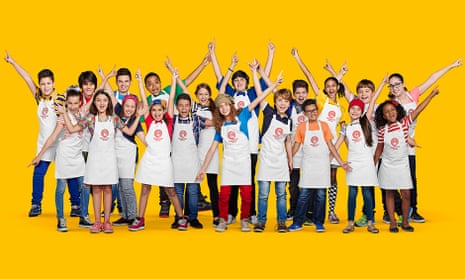Thousands of Brazilian women and girls have joined an online campaign to share their experiences of harassment and assault after abusive and sexually explicit tweets directed at a 12-year-old contestant on the country’s Junior MasterChef sparked a national debate on the issue.
More than 82,000 stories have been shared on Facebook, Twitter, and other social media platforms in response to comments posted after the opening episode of the programme, which aired on 20 October.
The remarks were aimed at 12-year-old Valentina Schulz. Comments included: “If there’s consent is it paedophilia?”; “She’s gonna be a porn star at 12”; “This sexy girl is to blame for paedophilia”, and “Valentina doing those dishes: what a bitch”.
The slew of online comments prompted Think Olga, an NGO working for women’s rights, to create the hashtag #primeiroassédio (first harassment), encouraging women to tell stories about the first time they had been assaulted.
Stories of catcalling, inappropriate touching, abuse and rape were quickly shared online, and an analysis of 3,111 tweets found that the average age at which girls were first assaulted was just nine.
Juliana de Faria, the founder of Think Olga, said the response reflected the extent to which paedophilia has come to be “normalised” in Brazil. “The great achievement of this campaign is [raising awareness], because you can’t fight against something that you don’t believe in or deny has taken place,” she said.
“A machine has been working to keep victims in silence. It isn’t operated by a super-villian, but manifests itself every time we’re told that we’re exaggerating, that we need to forget, that ‘what has happened has happened’ … There is something very powerful in discovering that we are victims.”
The #primeiroassédio campaign has prompted women to share shocking experiences on Twitter:
“9 years old, I lived on a farm and one of my dad’s employees tried to rape me. I was saved by the brother of the guy.”
“I was 14 years old, coming home from school, when a guy pulled up his car alongside me to show me he was masturbating.”
Such accounts appear to tally with a wider sexual focus on young girls.
In July, a porn website released statistics on its most popular search terms by country. While “lesbian”, “stepmom” and “milf” ranked the highest in he US and UK, “novinha” (young girl) and “teen” were the two highest in Brazil.
Faria said the word novinha “has become part of our national culture – and it’s very dangerous … The term is not just about innocently celebrating life, it’s about the pursuit of sex. What we are faced with is a culture in which paedophilia masquerades as a joke.”
In response to the first harassment hashtag, social scientist Manoela Miklos has launched another online campaign – using the hashtag #AgoraÉQueSãoElas (now it’s her turn) – which saw women taking over the blogs and columns of influential male writers for one week to tackle women’s issues in Brazil.
“I was troubled by the narratives in the media about the abuse stories,” said Miklos. “The people talking about the rising female voice were men. Men speaking about the importance of listening to women, but still speaking, not listening. So I posed a question: what if they really listened instead of just talking about listening?
“#primeiroassédio showed us the scale of the unspoken. We wanted to take these reflections from a personal to a public level – from catharsis to an articulate demand for rights.”
A recent study by Ipea (a Brazilian institute of applied economics research) found that of the 527,000 people raped each year in Brazil, 89% were female and 70% were children or adolescents. The report found that around one in five child rape victims were male.
However, Ipea estimates that only 10% of rape cases are reported in the country, and Brazil was ranked 79th in the 2014 UN gender equality index, behind Kazakhstan and Iran.
Ana Paula Meirelles Lewin, co-ordinator of the centre for the public defence of women’s rights in São Paulo, said: “In Brazil, what prevails is a macho, sexist and misogynistic culture. It is a country where people cannot talk openly about gender and sexuality.”
Miklos said that women in Brazil are “losing the few rights we have, the little freedom we have … But we are fighting back. It is the women’s spring in Brazil.”
